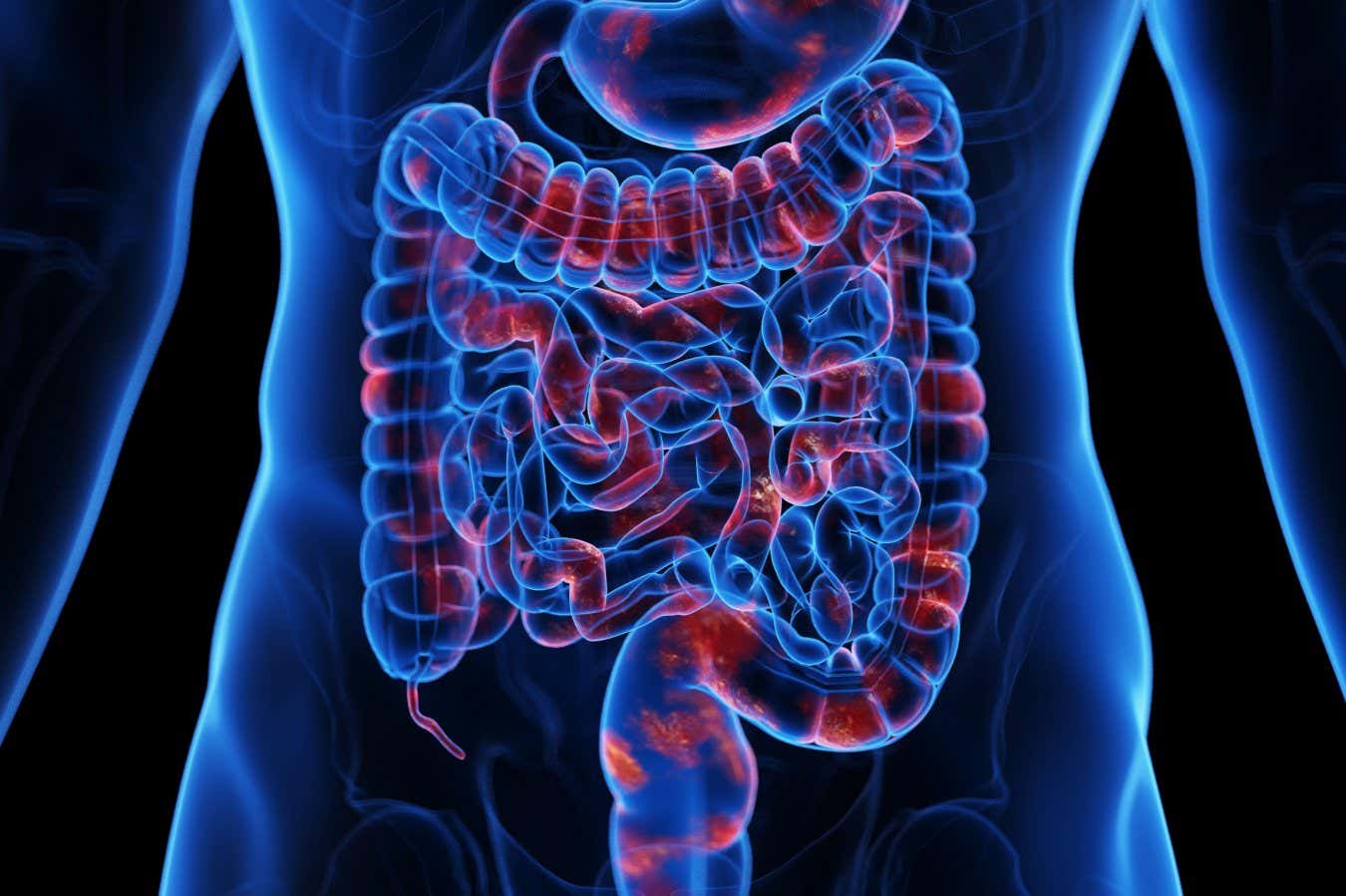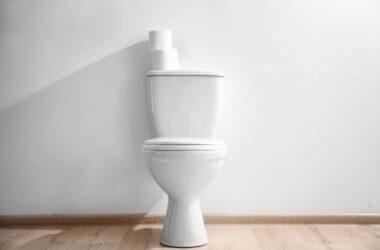Crohn’s disease is a condition in which parts of the digestive system become inflamed
Science Photo Library / Alamy
A group of specialized immune cells in the gut could potentially play a crucial role in controlling the progression of Crohn’s disease.
Crohn’s disease is one form of inflammatory bowel disease (IBD) that affects approximately 1 percent of adults in the UK and the US. However, little is known about the cause of these diseases, according to Adrian Hayday at the Francis Crick Institute in London.
Research suggests that immune cells in the gut, particularly a group called gamma delta T-cells, may be involved in IBD, says Hayday.
Hayday and his team aimed to gain a better understanding of how these cells appear in the guts of individuals with IBD compared to those with a healthy gut. They analyzed gut lining samples from 150 people undergoing a colonoscopy, some of whom had IBD.
The study revealed that individuals with IBD generally had lower amounts of a specialized subset of these immune cells, known as V-gamma-4 (Vg4) cells, compared to those with a healthy gut. Hayday explains that these cells are mainly found in the gut lining.
However, having fewer Vg4 cells did not necessarily mean a higher likelihood of having IBD. Instead, the team discovered that individuals with Crohn’s disease who had fewer of these immune cells in the gut were more likely to have more severe symptoms.
Furthermore, among individuals in remission from Crohn’s disease, those with Vg4 cells resembling those found in individuals with a healthy gut were less likely to experience a relapse within the following five years.
Hayday describes these cells as not preventing the disease but enhancing the response to it. He compares them to a vacuum cleaner, stating that with a good vacuum cleaner, one can stay on top of things.
It remains unclear why these cells appear to be depleted in individuals with IBD. However, they could potentially serve as a biomarker helping doctors diagnose the specific type of IBD a person has.
Robin Dart, a member of the study team from King’s College London, says, “In the clinic, when I have a patient who comes to me, we don’t really have clear biomarkers that tell us which drug might treat them best.” Dart suggests that these cells could assist doctors in determining if patients have a type of IBD likely to relapse.
Topics:








